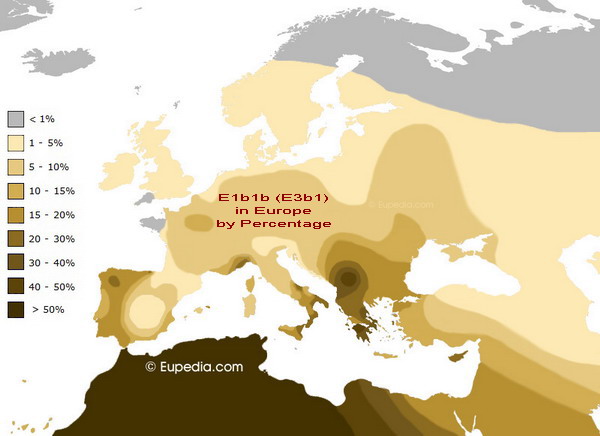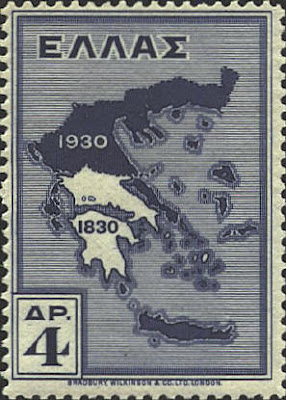"Libussa, Queen of the Goths"
German historian Gobelinus Persona (1358 – 1421) from Westphalia, in his Cosmodromium wrote: "Slavs that is Vandals, live across the Elbe.
Those in neighboring lands, Cracovia, Polonia, Bohemia, and Sclavonia, speak Gothic, that is Sclavonic."
On picture: "Libussa Goth. Reg." ("Libussa, Queen of the Goths") from Promptuarii Iconum Insigniorum (1553)
Libuše, Libussa or, historically Lubossa, is a legendary ancestor of the Přemyslid dynasty and the Czech people as a whole. According to legend, she was the youngest but wisest of three sisters, who became queen after their father died; she married a ploughman, Přemysl with whom she founded the Přemyslid dynasty, and prophesied and founded the city of Prague in the 8th century.
Legend: Libuše is said to have been the youngest daughter of the equally mythical Czech ruler Krok (Duke Krok).
Historian Enea Silvio Piccolomini (1405-1464.) Historia Bohemica , Vinko Pribojevic (15th-1532.) "The Glory of the Slavs", Jan Dubravius (1486–1553) in chronicle Historia regni Bohemia 1552. and all other Czech and Polish historians( 15th-19th) write that Czech and Lech (legendary founder of Czech and Poland) came with his people came from the Dalmatian province of Croatia in the 7th century.
In Russian Nestor's Chronicle (Saint Nestor the Chronicler 1056 – 1114) “The ancestors of the Slavs came from the Danube Basin into the land of Novgorod.”
 |
| Empire of Theodoric the Great |
Visigothic kings
Achila II -
Chindasuinth -
Egica -
Gesalec -
Liuva I -
Oppas
Reccared I -
Segeric -
Theodoric I -
Wallia -
12 names out of 38 may be found in phone books as tipical slavic.
-LA as name extension have a function of feminine possesive sufix. (imaO-imaLA) + 5 candidates.
-VA extesion is also most likely from OVA, it singnifies "daughter from" so these Kings may be women.
Name Egica and Wittiza may be that of woman because -CA/-ZA is used ad feminine deminutive sufix
(today usage is from gentle talk to a child of dear person, i can be attached to any female name)
+ 2 candidates.
Tulga which I do not recognise as Slavic name is also most likely a woman, typical extension A at the end is strictly female.
Ostrogothic kings
Amalasuntha - Athalaric
Eraric
Ildibad
Teia - Theodahad - Theodemir - Theoderic the Great - Totila
Valamir - Vitiges
6 out of 11 names are slavic only.
list of name endings in Slavic (this is not complete list, i am using name
extensions from historically marked areas of Gothic Kingdoms or territories)
-ap, -elj, -ac -an -ina -va, -uk -o -az, -ak -ta -la, -um -ro, -aš, -et, -a , -z, -er, -n -za, -lo, -uz, -r,
"Dacia: Land of Transylvania, Cornerstone of Ancient Eastern Europe"
author Ion Grumeza
Acording to Herodot Sarmats, Scythians, Tribali and Geti are all people living north of Macedonia including Dacians are Trachians.
Strabon writes that Macedonians consider Getae Trachian tribe that lives on the north side of Donau, same as Mezians and those are also Trachians and that these two are identical.
He also says that that their language, Getae and Mesians was the same.
Cassius Dio ,roma historian writes that language of Getae and Mesia and Dacians was the same.
"Scythians and Greeks"
Ellis Hovell Minns
Getae were also Carpi or Carpiani (Ptolomei) between the Tyras and Ister with town Harpis on the coast. Niederle suggestes they were Slavs, the same as the enigmatical Khorvate or Croats.
"Pausanias's Description of Greece"
Pausanias and James George Frazer,page 100
Getae were the Slavs and Bulgarians
"Whose love of which country? : composite states, national histories and patriotic discourses in early modern East Central Europe"
authors; Balázs Trencsényi and Márton Zászkaliczky
Pribivojevic relaying on Strabo; Trachians spoke the same language as Mysians,
Roman acording to Appian taught that Mysians are Illyrians and that Thracian and Illyrian language was the same too.
Getae or Goths used the same language as Mysians and Dacians - by Strabo
Pribivojevic draws the conclusion that Mysians ,Illyrians, Dacians and Getae were descendants of Tracians and thus of Thyras, son of Japeth, son of Noah. (his conclusion is hasted, there were older tribes on Helm already but this one fits with church dogma)
Roman acording to Appian taught that Mysians are Illyrians and that Thracian and Illyrian language was the same too.
Getae or Goths used the same language as Mysians and Dacians - by Strabo
Pribivojevic draws the conclusion that Mysians ,Illyrians, Dacians and Getae were descendants of Tracians and thus of Thyras, son of Japeth, son of Noah. (his conclusion is hasted, there were older tribes on Helm already but this one fits with church dogma)



























